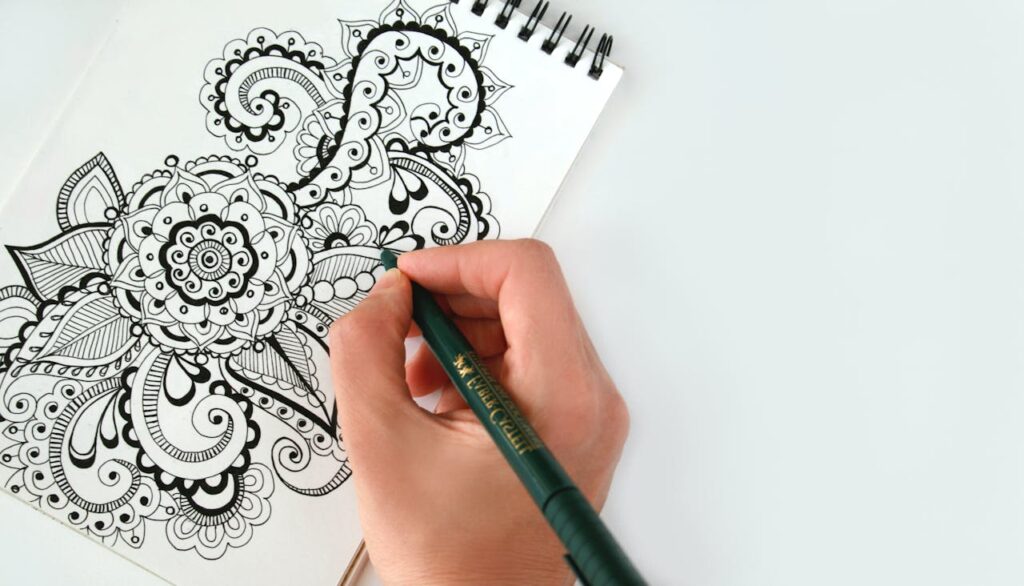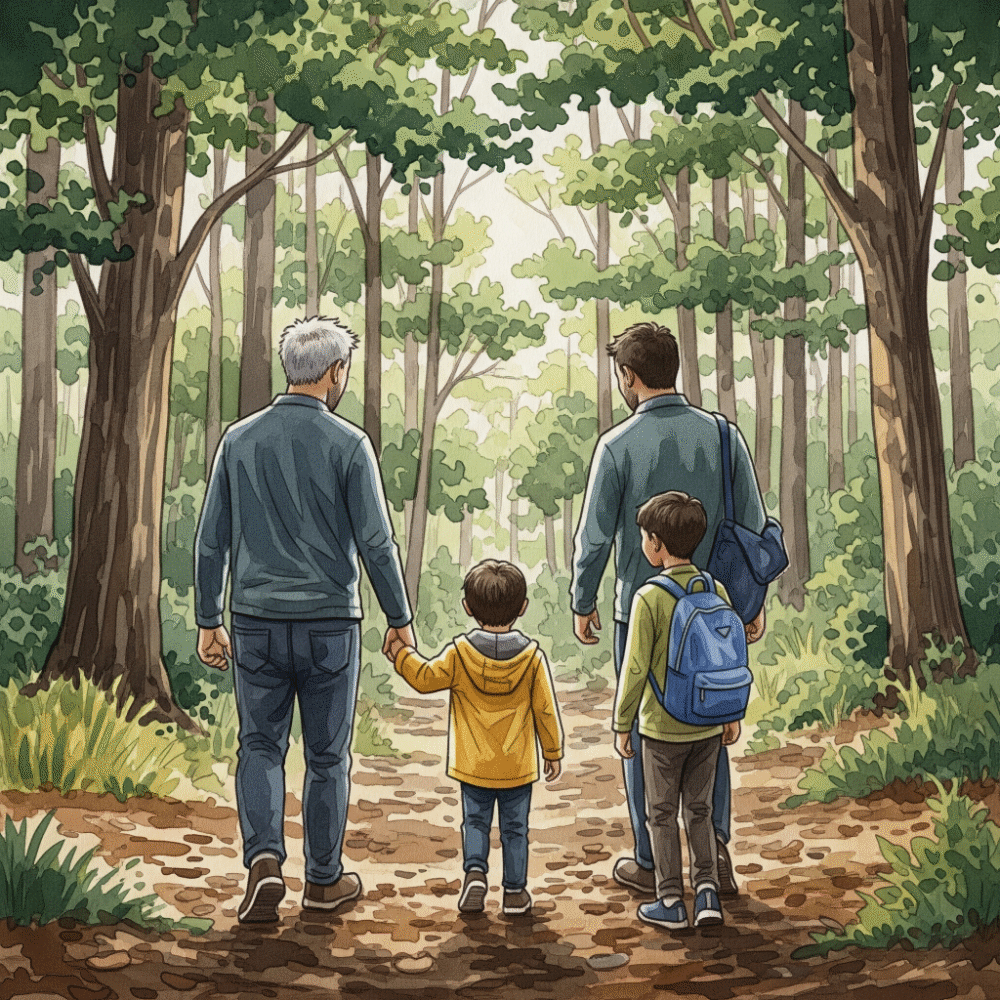I first heard about ‘spoon theory’ on a podcast. And honestly? It was one of those lightbulb moments, a quiet click in my brain that suddenly illuminated decades of my own lived experience. Before that, I just knew that some days… well, some days were simply too much. I knew the feeling of starting the day with a full tank and ending it by lunchtime, running on fumes, with nothing left to give anyone, least of all myself.
Maybe you know what I’m talking about. That bone-deep exhaustion that goes beyond being merely ‘tired’.
It’s the kind of drained that leads, for me, to a meltdown or, if I push it too far for too long, a complete shutdown. It’s a feeling of being utterly spent. So, what if we had a way to talk about it? A way to measure it, and maybe, just maybe, manage it a little better?
So, What’s This About Spoons?
The original spoon theory was created by Christine Miserandino to explain what it’s like living with a chronic illness. The basic idea is this: you start each day with a certain number of spoons, and each spoon represents a finite unit of energy.
Every single task, from getting out of bed (one spoon) and having a shower (another spoon) to making breakfast (one more), costs you a spoon. For neurotypical people, many of these tasks are automatic and cost very little. But for many of us, especially those of us who are autistic, the cost is so much higher.
And this isn’t just a feeling; there’s a reason for it. Our brains are wired to process a staggering amount of information from the world around us, all at once. We’re not filtering things out in the same way neurotypical brains do. So, that ‘simple’ trip to the supermarket? It’s not so simple. It’s a full-on sensory assault. The fluorescent lights, the competing music, the squeak of trolley wheels, the overwhelming choice of 40 different types of pasta… it all costs spoons. Lots of them.
Identifying the Energy Leaks
For me, the big energy drains are predictable, yet often unavoidable. Social events, even ones I genuinely enjoy, take a huge toll. It’s the constant processing, the navigating of unspoken social cues, the sheer effort of being ‘on’. In short, it’s the masking. Anything that requires me to perform a version of myself that isn’t truly authentic is like having a hole in my pocket where the spoons just leak out, one by one.
And the noise… oh, the noise. The sound of someone chewing can feel like a physical blow. A day filled with unexpected sounds or a constant barrage of noise leaves me feeling ragged and frayed by the end of it. The same goes for a lack of a plan. Not knowing what the shape of the day looks like creates a background hum of anxiety that slowly, steadily, saps my energy reserves.
Stemming the Flow: Can We Actually Get Spoons Back?
Here’s the million-dollar question: can we replenish the spoons once they’re gone?
My honest answer? For me, not really. Not in the middle of the day, anyway. Once my energy is gone, it’s pretty much gone until I can properly rest and reset. There’s no magic trick, no secret energy drink that suddenly refills the spoon drawer.
But what I’ve learned – and this has been absolutely life-changing – is that I can slow down the rate at which I lose them.
This is where moving from the theory of spoons to the practice of energy management comes in. It starts with a radical act of self-awareness. It’s about learning to be your own energy accountant. I’ve had to become a student of myself, noticing what activities drain me and which ones, if not adding spoons, at least don’t take as many.
Engaging in my special interests is a huge one. When I’m lost in a project, whether it’s tending to my garden or deep-diving into the history of a niche topic, the world seems to quieten down. The energy leakage slows to a trickle. It doesn’t necessarily give me a ‘second wind’ to go and do a load of chores, but it preserves what I have left. It protects my baseline.

This awareness allows me to plan my days, my weeks, with my energy levels in mind. I now understand that a few high-drain days in a row will have a cumulative effect. One big social event means I need to plan for a very quiet, low-demand day afterwards. It’s not about avoiding life; it’s about participating in it sustainably.
The Intersectional Squeeze: Spoons, Parenthood, and Other People’s Spoons
Of course, life isn’t lived in a vacuum. And for me, this entire energy equation is complicated by one of the most wonderful, and demanding, parts of my life: being a parent.

Being a dad to two amazing children is the greatest joy of my life. It is also, without a doubt, a significant and constant energy expenditure. There are demands on my time, my attention, and my sensory system that are simply unavoidable. You can’t exactly tell a toddler you’re out of spoons when they need a cuddle or have just tipped their breakfast all over the floor.
And it goes deeper than that. My eldest son has his own unique needs, his own energy patterns. So, I find myself not just managing my own spoon drawer, but trying to help him manage his, too. I’m constantly co-regulating, anticipating his needs, and trying to create a world for him that feels as safe and predictable as possible, all while my own internal battery is flashing red.
It adds a layer of complexity—and sometimes guilt—to the whole process. There are days when I know I’m running on empty, but I have to dig deep and find a ‘reserve spoon’ from somewhere because my family needs me. It’s a balancing act that I don’t always get right, but it’s one I approach with as much compassion for myself, and for them, as I can muster.
It’s a reminder that this journey of understanding our autistic selves isn’t just about us; it’s about how we show up in the world and for the people we love. Learning to manage my energy isn’t selfish; it’s the most loving thing I can do for my family. It means they get the best of me, not what’s left of me.
A Practice of Grace
And for you, reading this, I hope you can offer yourself that same grace. Start by just noticing. Don’t judge, just observe. How many spoons do you have today? What’s costing you the most? And what, even for a few moments, helps you stop them from slipping away?
This isn’t a puzzle with a perfect solution. It’s a practice. A gentle, ongoing process of learning to work with our beautiful, unique autistic brains, instead of constantly fighting against them. And that, my friend, is a way worth illuminating.

Leave a Reply